The leaves of plants in your garden are home to an unwanted visitor–caterpillars! Let’s know about Types of Green Caterpillars in detail.
Green caterpillars are mostly found feeding on the leaves. They are mostly harmless and non-poisonous, but some may cause severe stings and even spit acid! Almost all green caterpillars usually consume a lot of leaves before transforming into beautiful butterflies or moths! Let’s have a look at the Types of Green Caterpillars in detail.
Are Big Green Caterpillars Poisonous? Find Out!
Types of Green Caterpillars
1. Winter Moth Caterpillar
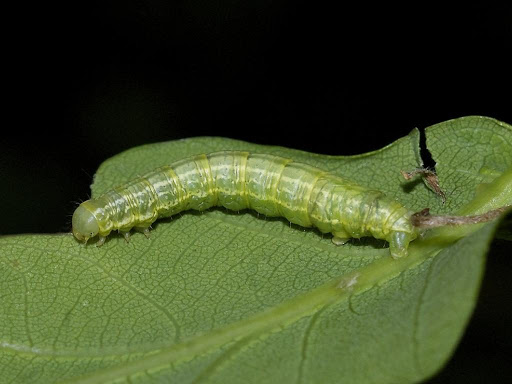
After
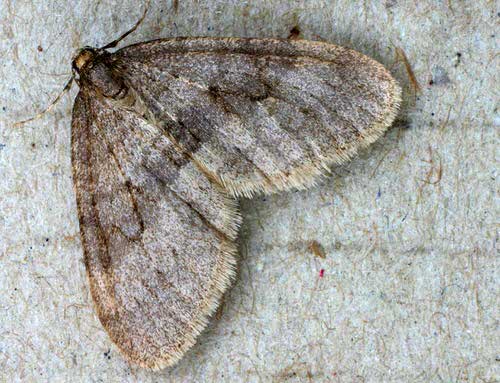
Scientific name: Operophtera brumata
Is it Harmful to Humans: Touching it can cause skin irritation or rashes
Winter Moth Caterpillars are invasive, growing only a few inches, and have white strips on the body. They are a common sight on beech, maple, oak, and willow trees, causing a lot of damage to the leaves. They also attack raspberry and blueberry shrubs too.
2. Imperial Moth Caterpillar
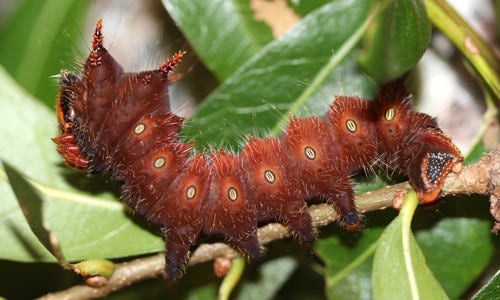
After
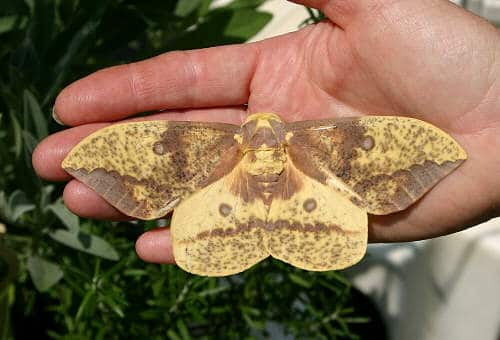
Scientific name: Eacles imperialis
Is it Harmful to Humans: No
The Imperial Moth is a huge caterpillar but does not harm plants unless present in large numbers. They can cause severe damage to the crops if their infestation becomes too much. If you have 2-3 in your yard, you can see them transforming to a beautiful butterfly!
Check out our article on beneficial garden insects here
3. Rough Prominent Moth Caterpillar
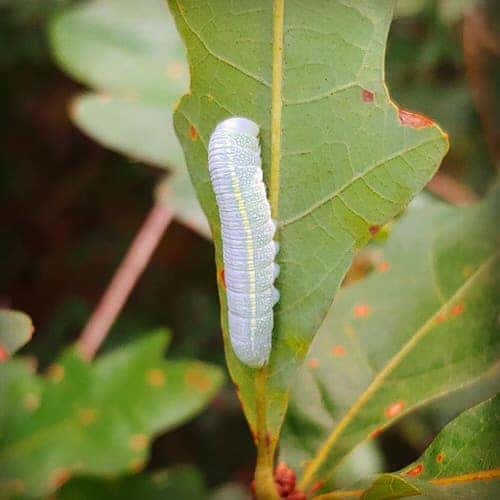
After
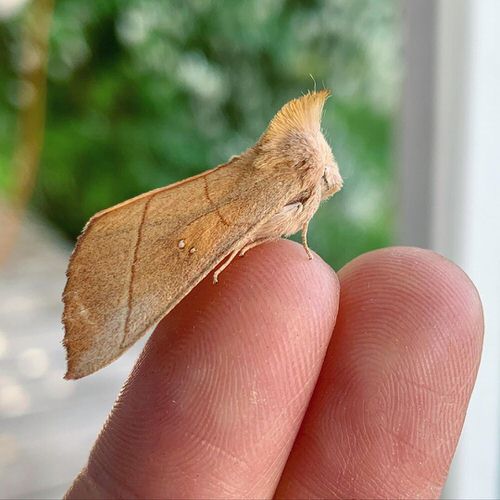
Scientific name: Nadata gibbosa
Is it Harmful to Humans: No
Rough Prominent Moth Caterpillar is mostly found on the green oak, birch, maple, oak, and willow trees. It is covered in bright yellow or pale white spots and grows into a small moth with compact wings in light brown color.
4. Cabbage Looper Caterpillar
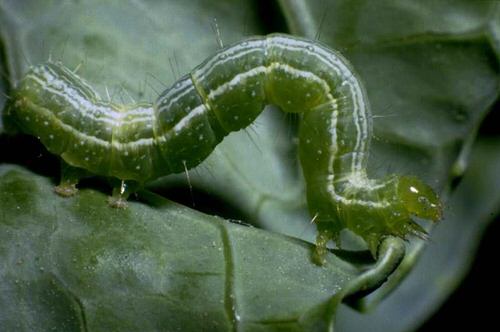
After
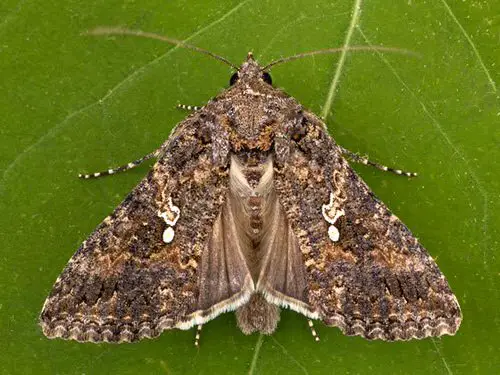
Scientific name: Trichoplusia ni (Hübner)
Is it Harmful to Humans: No
It is one of the most common caterpillars in America and can be seen on cabbage and other leafy garden plants. They are quite eaters, gobbling more than 3 times their body weight, so be careful when they are around.
5. Hackberry Emperor Caterpillar
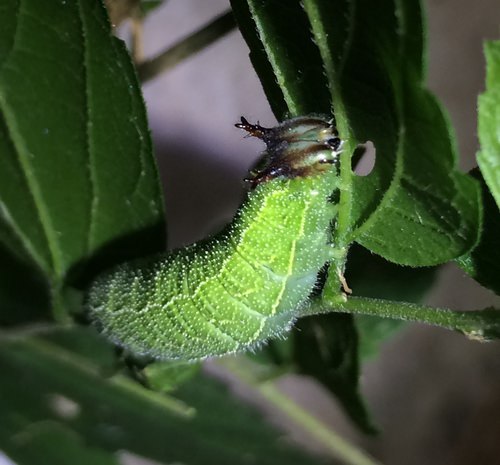
After
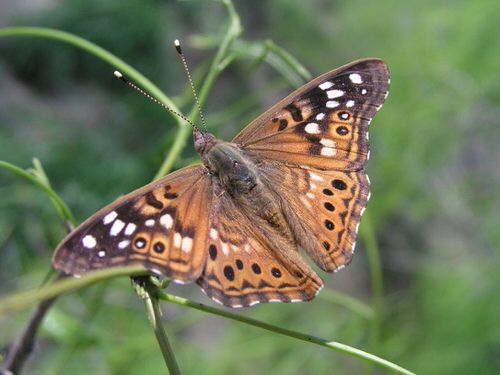
Scientific name: Asterocampa celtis
Is it Harmful to Humans: No
Hackberry Emperor Caterpillar spends its life on the hackberry trees and devours its leaves. It also feeds on sap, rotting fruit, dung, carrion, and is mostly found near forest glades and river edges.
6. Angle Shades Moth Caterpillar
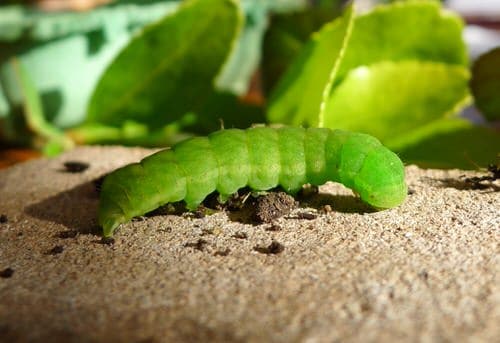
After
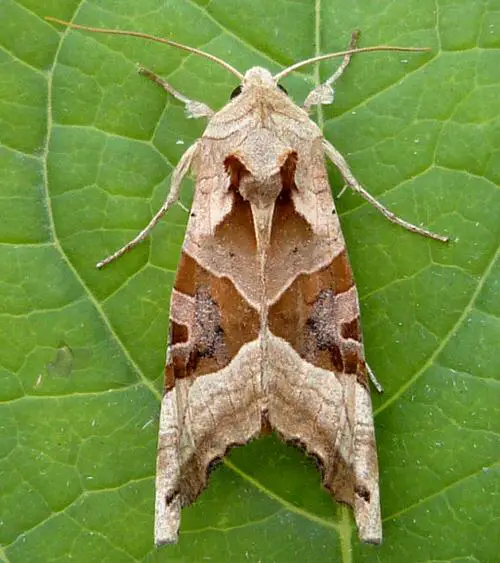
Scientific name: Phlogophora meticulosa
Is it Harmful to Humans: No
These insects can be seen all year round and mostly feed on flowers. They are also quite small in size as compared to some other caterpillars on this list. The Angle Shades pupates in the soil and turns into a unique looking moth.
7. Hickory Horned Devil Moth Caterpillar
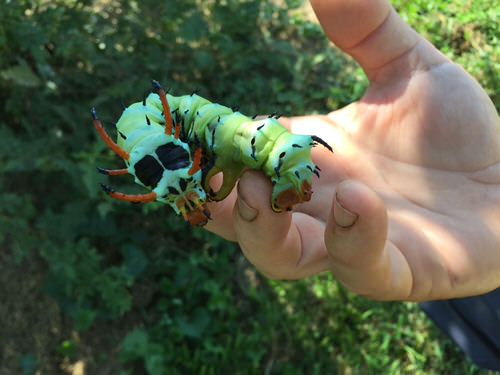
After
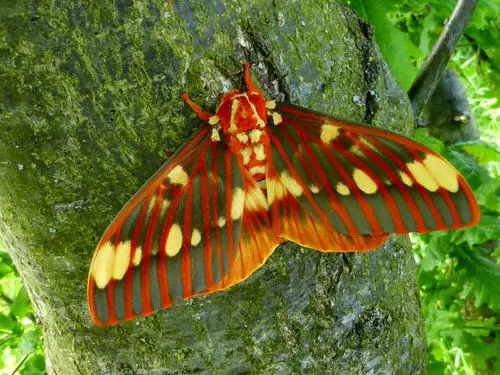
Scientific name: Citheronia regalis
Is it Harmful to Humans: No
It has a ‘devil’ attached to its name because of its rather attractive look, making it one of the most beautiful and largest green caterpillars on this list. The caterpillar only comes out at night and becomes a beautiful orange butterfly after it pupates.
32 Orange and Black Caterpillars
8. Cecropia Moth Caterpillar
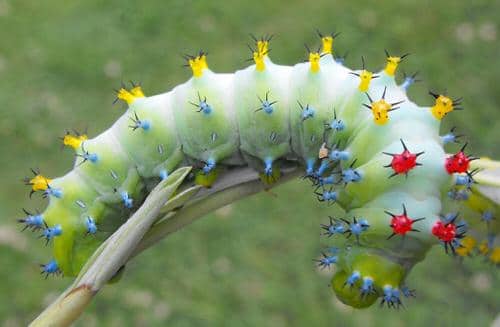
After
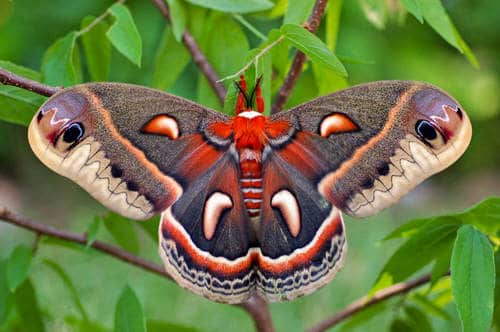
Scientific name: Hyalophora cecropia
Is it Harmful to Humans: Releases droplets of poison, which may cause severe irritation.
It is one of the most attractive and largest caterpillars with bright colored tubercles on the back, coming in a bright shade of yellow, red, and blue. The cecropia moth mostly feeds on maple, cherry, and birch leaves.
9. Rustic Sphinx Moth Caterpillar
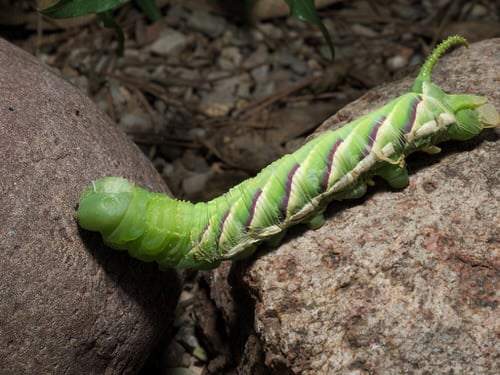
After
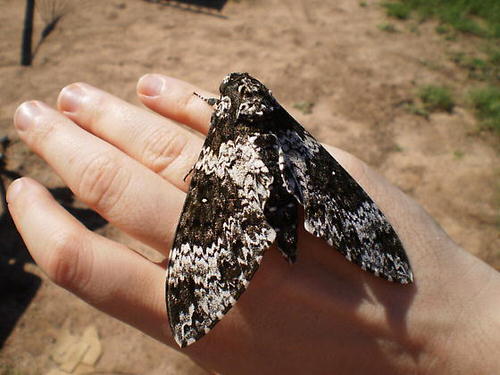
Scientific name: Manduca rustica
Is it Harmful to Humans: No
Rustic Sphinx Moth Caterpillar has a horn-shaped sting on end, but it is just for the show. It gets its name because it raises its body from the front, just like the Sphinx in Egypt. The insect has black and white markings in zig-zag patterns.
10. Cabbage White Butterfly Caterpillar
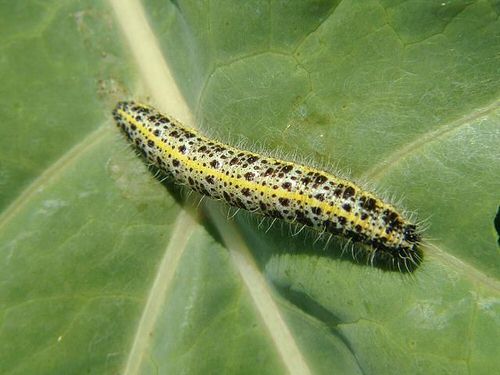
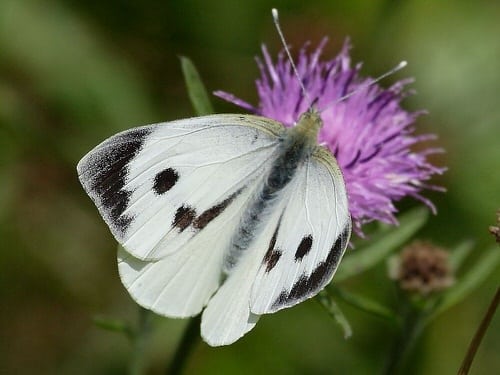
Scientific name: Pieris rapae
Is it Harmful to Humans: No
Cabbage White Butterfly Caterpillar can be found almost on any plant and can destroy the crops. If you have grown kale, broccoli, or cabbage, then look out for it as it can wreak havoc on the leaves. However, it grows to a charming white butterfly.
11. European Puss Moth Caterpillar
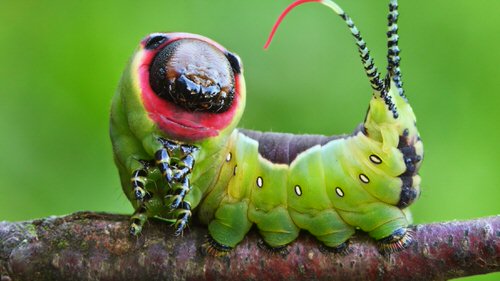
After
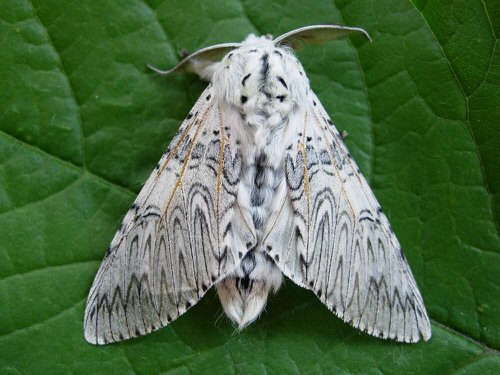
Scientific name: Cerura vinula
Is it Harmful to Humans: Spits out venom
European Puss Moth Caterpillar has two stings at its tail, which it uses to fight off threats. It is also one of the gorgeous looking insects both at the caterpillar and moth forms. This one is also the most beautiful types of green caterpillars.
Check out the cutest moths in the world here
12. Luna Moth Caterpillar
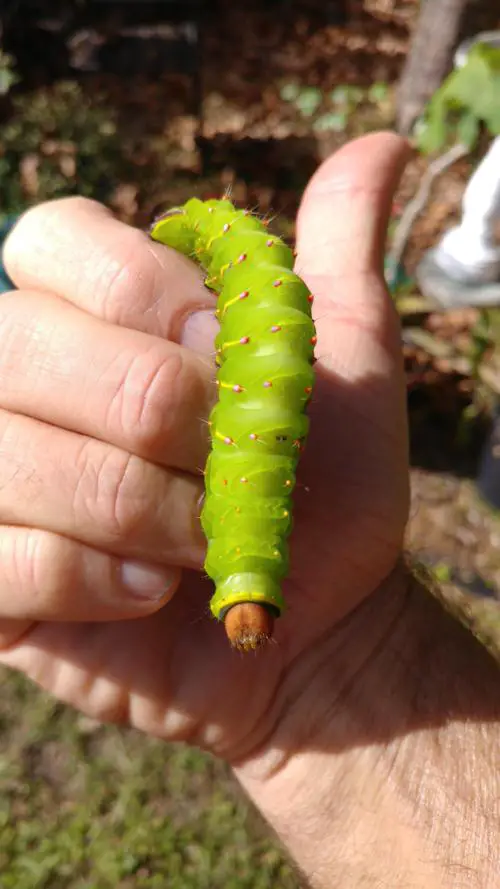
After
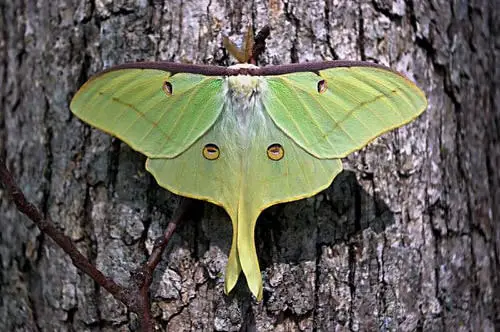
Scientific name: Actias luna
Is it Harmful to Humans: No
Luna Moth Caterpillar has orange and red spots on its back. It grows into a beautiful green colored moth with attractive wings in a bright shade of lime-green and a white body.
13. Copper Underwing Moth Caterpillar
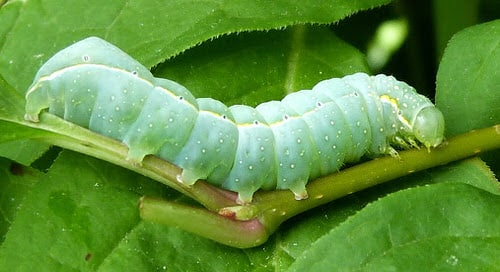
After
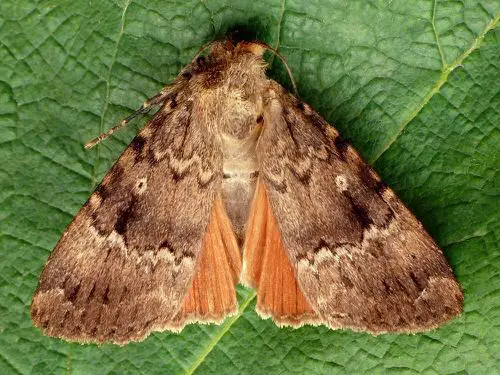
Scientific name: Amphipyra pyramidea
Is it Harmful to Humans: No
Copper Underwing Moth Caterpillar lives mostly on trees and shrubs. As it starts to eat more and grow, its body takes a dark shade. It has a peak-shaped hump at the back and grows into a black-brown moth.
14. White-Lined Sphinx Moth Caterpillar
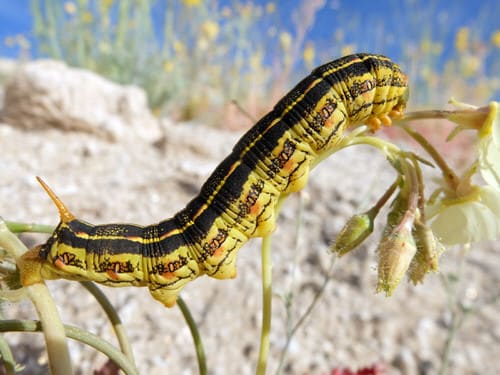
After
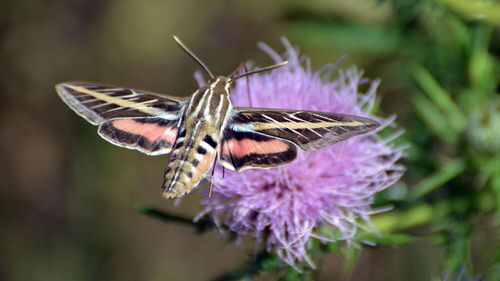
Scientific name: Hyles lineata
Is it Harmful to Humans: No
This caterpillar comes in different shades of green with orange and yellow stripes with black spots. It is also referred to as the ‘hummingbird moth’ thanks to its wide, small bird-like wingspan.
15. Tiger Swallowtail Butterfly Caterpillar
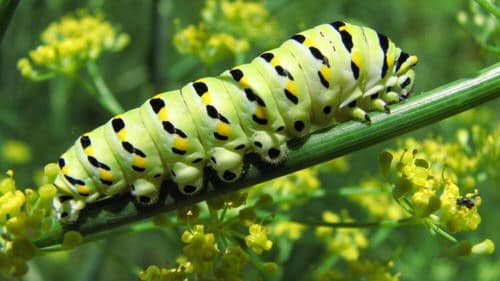
After
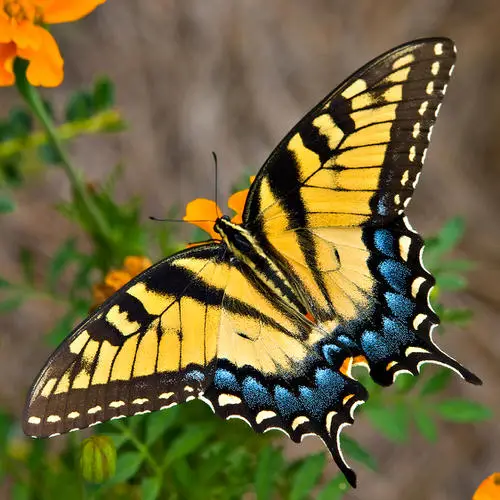
Scientific name: Pterourus glaucus
Is it Harmful to Humans: No
These caterpillars turn into huge butterflies with a gorgeous pattern on wings, which also work as a defense system to scare off predators. Tiger Swallowtails are also one of the most popular among butterfly collectors.
Do Butterflies Bite? Find Out!
16. Emperor Moth Caterpillar
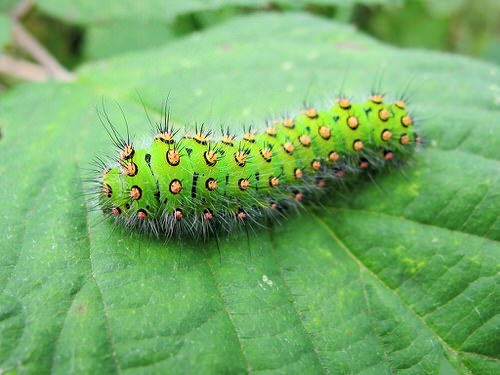
After
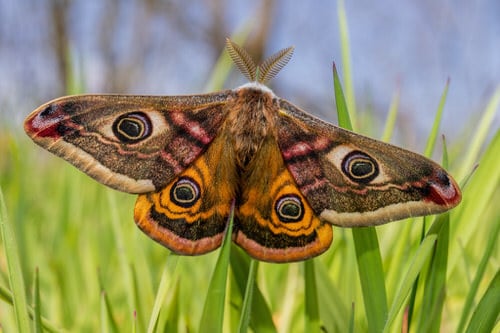
Scientific name: Saturnia pavonia
Is it Harmful to Humans: Touching it can cause skin irritation.
Another caterpillar that looks stunning with its bright green skin and black rings. It converts to an eye-catching butterfly with orange hindwings and grey forewings that have eye marks on them.
17. Black Swallowtail Butterfly Caterpillar
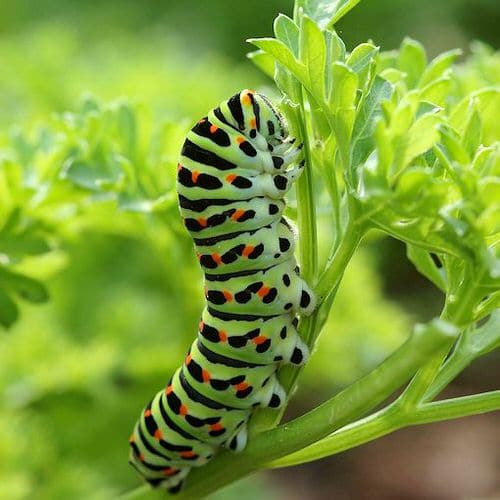
After
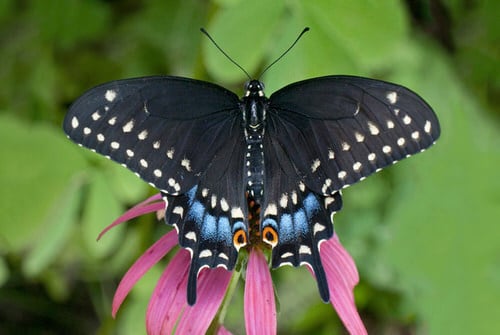
Scientific name: Papilio polyxenes
Is it Harmful to Humans: No
One of the most common caterpillars, the insect, grows into a gorgeous looking butterfly, praised for its beauty with orange and blue markings on wings. As a part of its defense, it emits a foul-smelling odor.
18. Genista Broom Moth Caterpillar
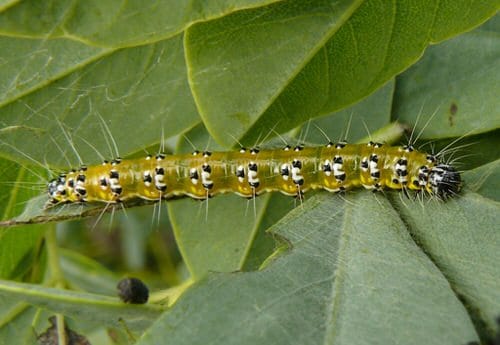
After
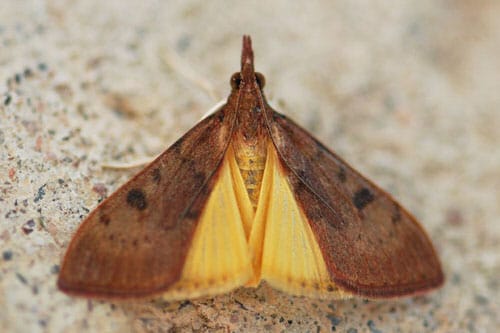
Scientific name: Uresiphita reversalis
Is it Harmful to Humans: No
Also popular as genista caterpillar and sophora worm, it mostly resides on pea plants and honeysuckles. It is really easy to spot, thanks to its distinctive markings on the body with a bright yellow-lime green color, which warns birds to stay away from it.
19. Tomato Hornworm Caterpillar
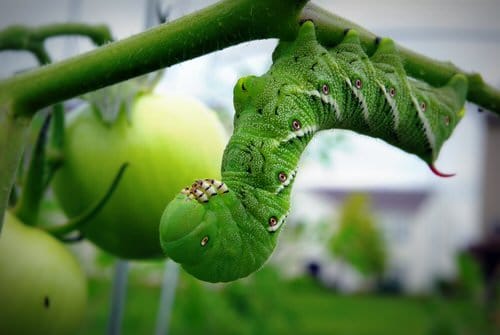
After
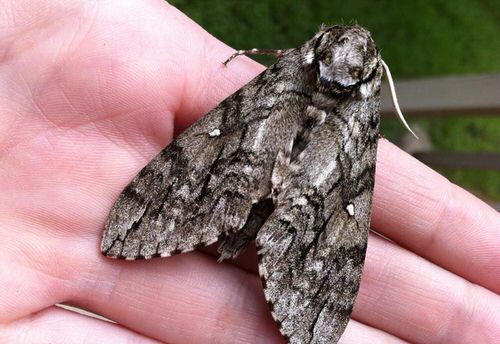
Scientific name: Manduca sexta
Is it Harmful to Humans: No
Tomato Hornworm Caterpillar mainly lives on tomato plants and its related species. As it’s well camouflaged, it is difficult to spot and can destroy tomato crops in no time. It might be a bad caterpillar but turns to a cool looking black-grey moth.
20. Io Moth Caterpillar
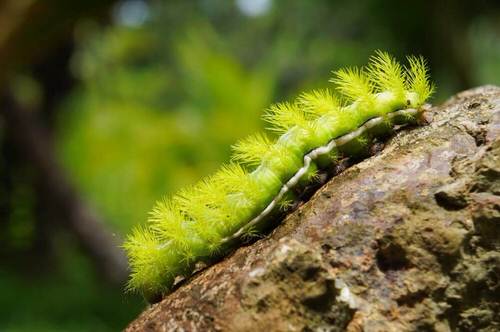
After
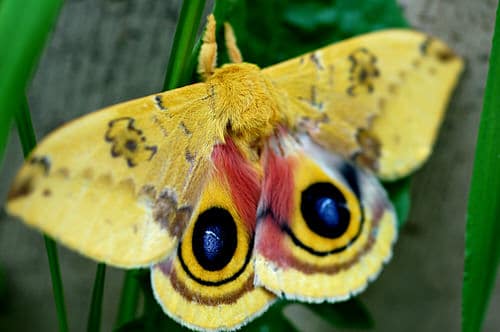
Scientific name: Automeris io
Is it Harmful to Humans: Has poisonous spines all over its body which can cause a lot of pain.
The caterpillar starts its life with an orange body, then turns yellow and finally gets a pale green color with pink and creamy white stripes. Grows into a pale-yellow moth with black and blue eyespot on wings that make it look like a butterfly.



Aphids, which can be green, black, tan, or yellow, are one of the most common—and destructive—garden marauders. These little insects especially love roses, although you’ll find them clustered on the new growth of many popular annual and perennial flowers. What’s the antidote? Why, ladybugs, of course. While humans generally find ladybugs cute, they are fearsome aphid predators. A single ladybug can consume more than 50 aphids each day.
i found a catterpillar that is green. its head is long and leachy like and is not the usual casing kid of head you see. it has one white stripe down the back and that is it. it is a light green. i cant seem to find it anywhere! do you know what it could be?
also it was found drowning in water after a rainy night
Is there a way I can take a picture of the caterpillar and then it will show me what type it is?
I was pretty sure that the red horn was a giveaway for the carolina sphinx moth, the “tobacco hornworm” not tomato hornworm.